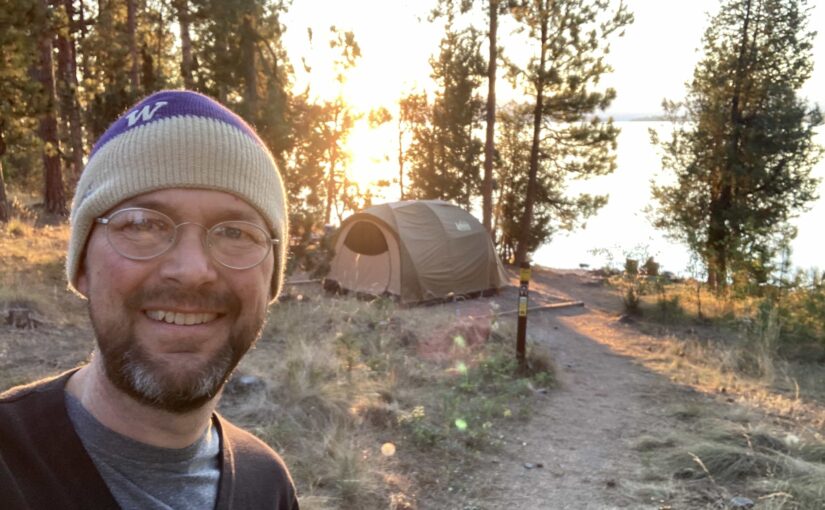Before I embraced minimalism, I loved to go camping. In the woods I noticed how quiet my mind was. It wasn’t just bathing in the trees that was calming. I enjoyed not being reminded by my multitude of belongings of the many chores I needed to get done at home. Similarly, when I was in a hotel for a few days, I didn’t have mental conversations with the items in the room. The wallpaper with the lifting seam, the fake floral arrangement that needed dusting, or the floor tiles with the marks were not talking to me. They had someone else to bother. But before minimalism, my stuff at home was not so quiet.
Each time I walked past our silver bowl on our living room bookcase shelf it talked to me. It nagged “You should polish me, I don’t look good tarnished.” and I’d say, “OK, but I’m busy now, maybe next time.” My car would demand “you should wash me” or “change my oil.” My guitar reminded me “You should play me,” or “I will get out of tune and you will lose your callouses that you worked so hard to acquire.” My stamp collection scolded me, “Being packed in this box could damage the stamps.” My canning equipment asked me “When will you can some more jalapeños? Am I just taking up space over here?”

(Source: Metropolitan Museum of Art, CC0, via Wikimedia Commons)
Throughout my house, my stuff was engaging me in “conversations.” Some of them I liked. My favorite book whispered, “you will love the next chapter,” but I told it I’m too busy because I should change the oil in the car, or polish that damn bowl, or play the guitar, or clean the shed, or dust, fix, or organize all of my other things. Most of the conversations I didn’t like. I constantly “should-ed” on myself due to my self-imposed guilt from everything my stuff demanded I do.
Not only did my stuff take up my time and clutter my space, it cluttered my mind with a barrage of “talk.” As I underwent a metamorphosis to become a minimalist and decreased the amount of stuff I owned, I also freed myself from these innumerable mental conversations. It was calming.
By prioritizing what I valued most and letting go of the rest, I found I didn’t need the guitar in my life, or the canning equipment, or the stamp collection, and I certainly didn’t need the silver bowl. They didn’t support my top values of traveling the world, spending more quality time with family and friends, improving my health, learning a language, and following my curiosity. So I let them go and made physical and mental space to focus on the mental conversations I did want to have. I say yes more often to the books I want to read, yes to visiting the Sahara and Angkor Wat, and yes to more quality time with my mom (my dad passed away last year).
By following my top values and letting go of the rest, I found I didn’t need 98% of my belongings (your amount will vary). I spend a lot less time researching, buying, organizing, storing, repairing, cleaning, and disposing of stuff I don’t need. This provides me an enormous amount of time to do what I value. I also have time to do nothing—to let my mind rest. Our brains need downtime to process all of the inputs that we feed it everyday. Having time to meditate, walk in nature, or just be is crucial to our mental well-being. Now I say yes to my health.
My house is much quieter now. My mind is much quieter now. I am more content.
